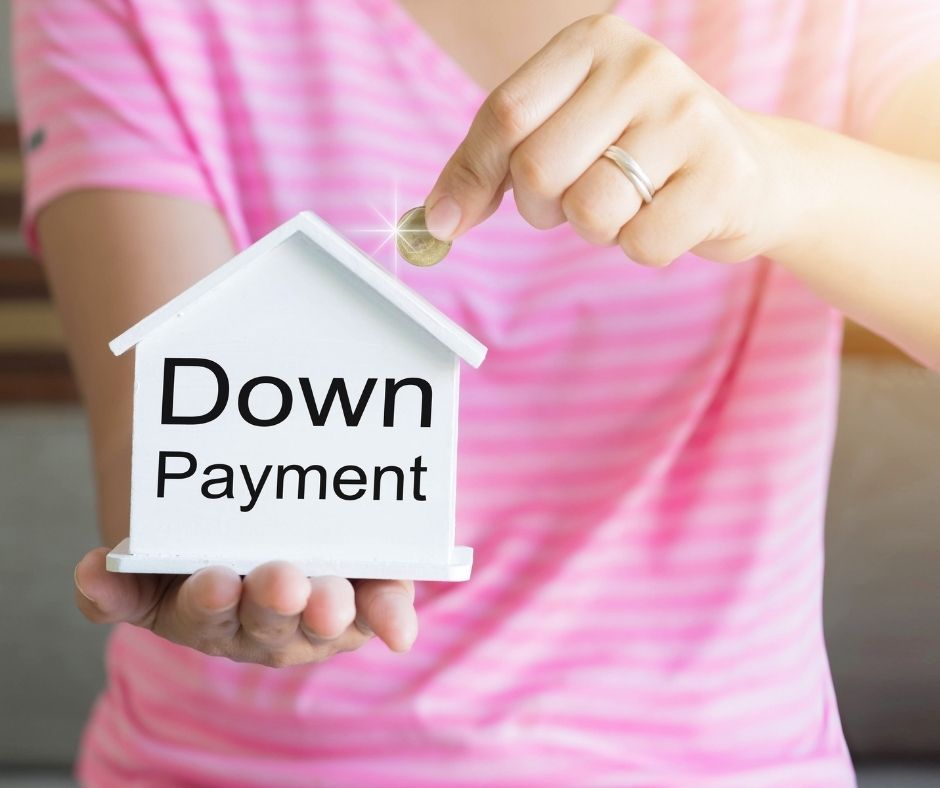A wide range of emotions might be triggered by the prospect of putting thousands of dollars down on a home: dread, worry, and anxiety, for example. Do any of those things sound familiar?
A down payment is not an easy undertaking, but it is completely doable if you have a positive attitude and a solid strategy in place. If you incorporate some of these suggestions into your spending plan, you will almost certainly notice a consistent increase in your savings—enough to allow you to save for a downpayment and purchase the home of your dreams.
What is a down payment?
When you buy a house, the down payment is a "cash payment" that you make to the seller at the time of closing. Your lender covers the remainder of the purchase price. The down payment amount is calculated as a percentage. For example, if you buy a property for $250,000 and your down payment is 20% of the buying price, your down payment would be $50,000. A 10% down payment equals $25,000 of the buying price. Some mortgage programs do not demand a down payment, but in most circumstances, you must have a stake in the venture.
How much is a down payment on a house in Texas?
If you are using a conventional mortgage and you want to ensure the lowest monthly payments you can get, you will have to pay at least 20% down payment on a house in Texas. That means that if the house costs $300,000, you have to save $60,000.
However, there are alternatives to putting down 20%. FHA loans, which are government-insured, are frequently used by first-time purchasers. They have a 3.5 percent down payment ($10,500) requirement, but they also require mortgage insurance payments. Down payments for veterans and their families can be as low as $0. Fannie Mae and Freddie Mac have fixed-rate mortgage programs that demand only a 3% down payment, but they also require mortgage insurance, which raises the monthly payment.
Understand your position.
First and foremost, sit down with your mortgage lender and take an honest look at your financial situation in order to establish what type of loan you qualify for and how much money you will need to put down. This might provide you with a more realistic picture of the amount of time you’ll need to save in order to reach your savings objectives.
Create a system for saving money (and don’t touch it).
By contributing to automated savings account on a weekly, monthly, bi-monthly, or other regular basis, you are essentially making the act of saving for a down payment a no-brainer for yourself. Having some of your money put into your savings account without you having to remember to do it (or not do it) yourself increases your likelihood of saving and avoiding unnecessarily withdrawing funds from your account, according to the National Savings and Investment Institute.
Be prepared for the unexpected.
Life happens, and you are going to encounter a few speed bumps along the way when trying to save money. That is perfectly normal. No excuse should be given for allowing these snags to destroy your prospects of purchasing your new home as long as you are willing to make up the difference down the road.

Avoid spending money that isn’t necessary.
The fact that you make daily coffee runs adds up over time is self-evident, right? Five dollars may not seem like a lot of money, but when added up over the period of a week or a month, it can account for a considerable amount of your monthly expenditure. Consider carefully which expenses you can realistically do without for the time being, and whether or not you should consider eliminating them entirely from your budget.
Take a fresh look at your debit and credit card situation.
If you have a credit card that you use on a regular basis and that has a high-interest rate, this could put a substantial dent in your savings efforts. To avoid damaging your credit or your capacity to save in the long run, try to pay off these cards as fast and efficiently as you possibly can.
Connect with a mortgage lender ahead of time!
Contact me today to connect you to some of the best local lenders in the area. They can look at your current financial situation and come up with a plan to prepare you to get approved for a loan. It is never too early to start. The more you know the better the chances of reaching your goal of homeownership sooner. They can even advise you about improving your credit. Don’t make your landlord richer, you can become a homeowner.






Leave a Reply
Your email is safe with us.